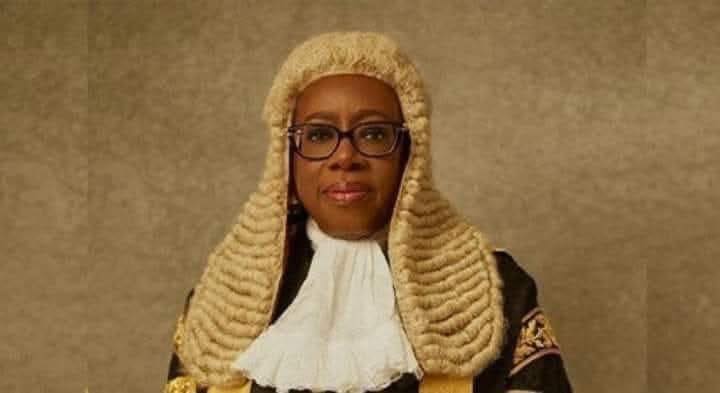NJC Suspends Three Judges for One Year Without Pay Over Judicial Misconduct
In a landmark decision aimed at cleansing the Nigerian judiciary and reinforcing public trust, the National Judicial Council (NJC) has announced the suspension of three senior judges for one year without pay, citing various acts of judicial misconduct. The affected judges are Justice Jane E. Inyang of the Court of Appeal (Uyo Division), Justice Inyang Ekwo of the Federal High Court (Abuja Division), and Justice Aminu Baffa Aliyu of the Federal High Court (Zamfara Division).
The NJC’s decision, announced on Wednesday, April 30, 2025, followed investigations and deliberations during its 105th meeting chaired by the Chief Justice of Nigeria, Hon. Justice Olukayode Ariwoola. The disciplinary actions come as part of the Council’s intensified efforts to rid the judiciary of unethical practices and uphold the integrity of the bench.
Justice Jane E. Inyang, who until recently sat at the Federal High Court, Uyo Judicial Division before her elevation to the Court of Appeal, was suspended for what the NJC termed an “egregious abuse of judicial discretion.” According to the NJC’s findings, Inyang granted an interim ex parte order allowing the sale of commercial properties owned by Udeme Esset—former owner of Stratas Filling Station and a director at Jopen Oil—without affording Esset the opportunity to defend himself in court.
YOU MAY READ
NJC suspends Anambra and Rivers Judges
The matter stemmed from a longstanding loan dispute between Esset and Keystone Bank, dating back to 2002–2004. While ex parte applications are typically reserved for maintaining the status quo, Inyang instead authorized the liquidation of Esset’s business assets at an interlocutory stage.
This action, the NJC stated, constituted a clear violation of Rule 3(5) of the Revised Code of Conduct for Judicial Officers, which mandates that judicial officers must avoid granting ex parte orders that adversely affect the rights of other parties unless absolutely necessary.
“Hon. Justice Jane E. Inyang was found to have abused her office by issuing inappropriate Ex parte Orders for the sale of Hon. Udeme Esset’s petrol station and other businesses,” read the statement from Kemi Ogedengbe Babalola, NJC’s Deputy Director of Information. “The act occurred in Suit No. FHC/UY/CS/46/2023.”
As a result, Inyang will not receive salary or allowances for one year and will remain under monitoring by the NJC throughout this period.
Justice Inyang Ekwo’s misconduct was multifaceted and considered particularly severe. According to the NJC, Ekwo delivered rulings on a criminal matter (Charge No. FHC/ABJ/CR/184/2021) without first hearing the involved parties, thereby violating the basic principle of fair hearing enshrined in both the Nigerian Constitution and judicial ethics.
Even more troubling was his failure to include the identities of parties involved in the ruling, a blatant breach of Rules 3.1 and 3.3 of the Revised Judicial Code of Conduct. He further ignored a standing application to set aside prior proceedings held in the absence of parties and summarily dismissed the charges against the defendants without addressing the merit or legality of their arguments.
“Delivering a ruling in a matter of such gravity without giving parties the opportunity to be heard is not just a procedural error—it is a fundamental dereliction of judicial responsibility,” the Council said.
YOU MAY READ
PURPORTED REMOVAL OF CHIEF JUDGE OF BENUE STATE: A BRAZEN ASSAULT ON THE CONSTITUTION
Justice Ekwo has been barred from any career progression, including elevation or appointment to higher courts, for five years. In addition to the one-year unpaid suspension, he has been placed on a five-year watch list.
Justice Aminu Baffa Aliyu of the Federal High Court, Zamfara Division, was found guilty of obstructing law enforcement operations through his judicial orders. Specifically, the NJC’s Investigation Committee found that in Suit No. FHC/GS/CS/30/2021—Government of Zamfara State vs. EFCC—Aliyu issued an order barring the Economic and Financial Crimes Commission (EFCC) and other security agencies from executing their lawful duties.
The NJC ruled that this action violated Rule 3(1) and Rule 5 of the Revised Code of Conduct for Judicial Officers and demonstrated a reckless disregard for established judicial precedent and the doctrine of stare decisis.
The NJC’s statement read: “Hon. Justice Baffa was found liable for acts of judicial misconduct for granting orders that effectively shielded public officials from accountability and hindered the EFCC from carrying out its statutory mandate.”
Aliyu’s misconduct earned him a one-year unpaid suspension, a three-year bar on promotion or elevation, and inclusion on the NJC’s watch list for the same period.
While three judges were sanctioned, the NJC also cleared others of wrongdoing following the investigation of petitions found to lack merit.
Justice A. O. Awogboro of the Federal High Court, Lagos Division, was exonerated in a petition brought by Kasali Azeez Olagoke and S. Hamza. The petition involved allegations in Suit No. FHC/CS/2021, Chief Adesanya Musediku vs. Assistant General of Police, Zone 2, Onikan. Upon review, the NJC concluded that there was no actionable misconduct.
Justice C. N. Mbonu Nwenyi of the Anambra State High Court also received a clean slate after a petition filed by Professor Paul C. Obianaso was found to be baseless. Similarly, the complaint against Justice R. B. Haastrup of the National Industrial Court, brought by Adaku Amadi, was withdrawn and subsequently dismissed by the Council.
YOU MAY READ
Wike honoured by body of benchers
The Council’s latest round of disciplinary actions signals a renewed commitment to purging the judiciary of unethical conduct. Speaking on the broader implications, legal analysts hailed the NJC’s actions as a turning point in judicial accountability.
“The Nigerian judiciary has often been criticized for opacity, lack of accountability, and corruption,” said legal analyst Barrister Raymond Chukwu. “This decision demonstrates that the NJC is taking seriously its role as the moral compass of the judiciary.”
Others argue that while disciplinary action is necessary, preventive mechanisms are even more critical. Legal educator Dr. Halima Adebayo called for more training, oversight, and judicial reforms to ensure such misconducts are not repeated.
“Sanctions help, but prevention is better,” she noted. “We need a judiciary that does not just fear consequences but is committed to ethical excellence.”
The public reaction to the suspensions has been mixed but largely supportive. Civil society organizations and anti-corruption advocates praised the NJC for its forthrightness.
“For too long, Nigerians have suffered under the weight of a judiciary that seemed untouchable. This is a welcome development,” said Deji Adeyanju, a rights activist.
However, some citizens raised concerns about transparency and consistency in how the NJC handles disciplinary proceedings.
“We need the full reports made public,” said Omolara Ifeanyi, a lawyer based in Ibadan. “People deserve to know exactly what happened in these cases.”
The immediate implication of the NJC’s decision is that the sanctioned judges will not preside over any judicial matters during their suspension. Their ongoing cases will be reassigned, and litigants affected by their rulings may be allowed to seek redress.
Furthermore, the affected judges now carry a mark on their professional records that may hinder future appointments or roles within the judiciary. It is expected that their conduct will be monitored closely even after their suspensions expire.
The NJC’s bold move to sanction Justices Jane Inyang, Inyang Ekwo, and Aminu Baffa Aliyu reaffirms its commitment to safeguarding the integrity of the Nigerian judiciary. While these suspensions are not the first of their kind, their scope and implications set a significant precedent. If sustained, such disciplinary measures could usher in a new era of transparency, professionalism, and ethical adherence in Nigeria’s justice system.
As the nation inches closer to the 2027 general elections and faces rising judicial caseloads amid political and social turbulence, a strong and trusted judiciary remains not just a necessity—but a national imperative.





